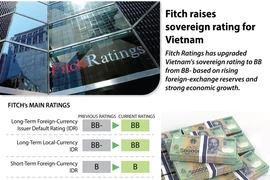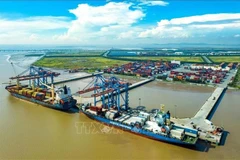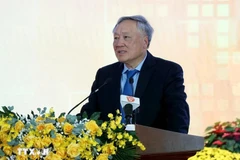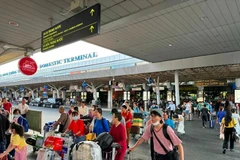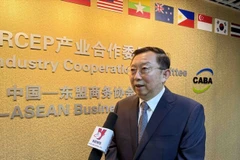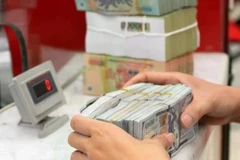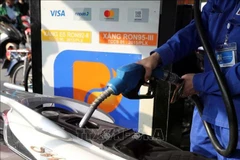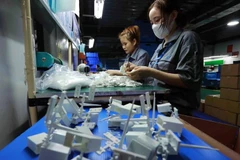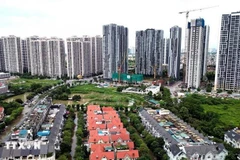Hanoi (VNA) – The Vietnameseeconomy is enjoying stronger growth compared to 2017 with increasing foreignreserves and tight control of foreign debt, said Fitch experts at the “Fitch onVietnam” forum held in Hanoi on June 8.
Speaking at the event, Sagarika Chandra, senioranalyst at Fitch Vietnam, said in May 2018, Fitch had improved Vietnam’s Long-TermForeign-Currency Issuer Default Rating (IDR) rating from BB- to BB with astable outlook, thanks to a rise in foreign exchange reserves and strongeconomic growth.
Vietnam records a high growth rate incomparison to emerging economies or other BB-ranked nations, she said.
The country’s GDP growth was above 6percent in 2017 and is expected to reach 6.7 percent in 2018 and followingyears, she noted, adding that this was one of the important factors that helpedimprove Vietnam's rating.
According to the expert, the rating is aresult of the country’s maintenance of macroeconomic stability, stronger resilienceto external risks and compliance with financial criteria. The Vietnamesegovernment promulgated a flexible exchange rate mechanism in early 2016, and committedto limiting national debt as well as to restructuring state-owned enterprises.Among those factors, sustainable macroeconomic performance and increased foreignreserves are the two most important elements of Fitch's rating.
Fitch forecasted the Vietnamese economycould grow 6.7 percent in 2018, making Vietnam one of the fastest growingeconomies in Asia-Pacific and the fastest among BB-rated countries.
Can Van Luc, chief economist of theInvestment Bank for Development of Vietnam (BIDV), said Vietnam sees a positiveeconomic outlook with recognition of many international organisations. TheWorld Bank has also revised up Vietnam's economic growth forecast to 6.8 percentfrom the previous 6.5 percent, he added.
Luc said two other factors making theeconomy more attractive is the fast expansion of private sector consumption,which increased by about 10 percent in the past year, and the surge in privateinvestment besides the inflow of foreign capital.
Sebastian Eckardt, the World Bank's LeadEconomist for Vietnam, highlighted a number of risks and challenges to Vietnamin future.
He said the economy is highly open, makingit vulnerable to impacts of external factors such as trade fights, higher oilprices, and geopolitical instability.
In addition, the tightened monetary policyadopted by many state banks is expected to exert great impacts on the worldeconomy and Vietnam will not be spared, he said. -VNA

